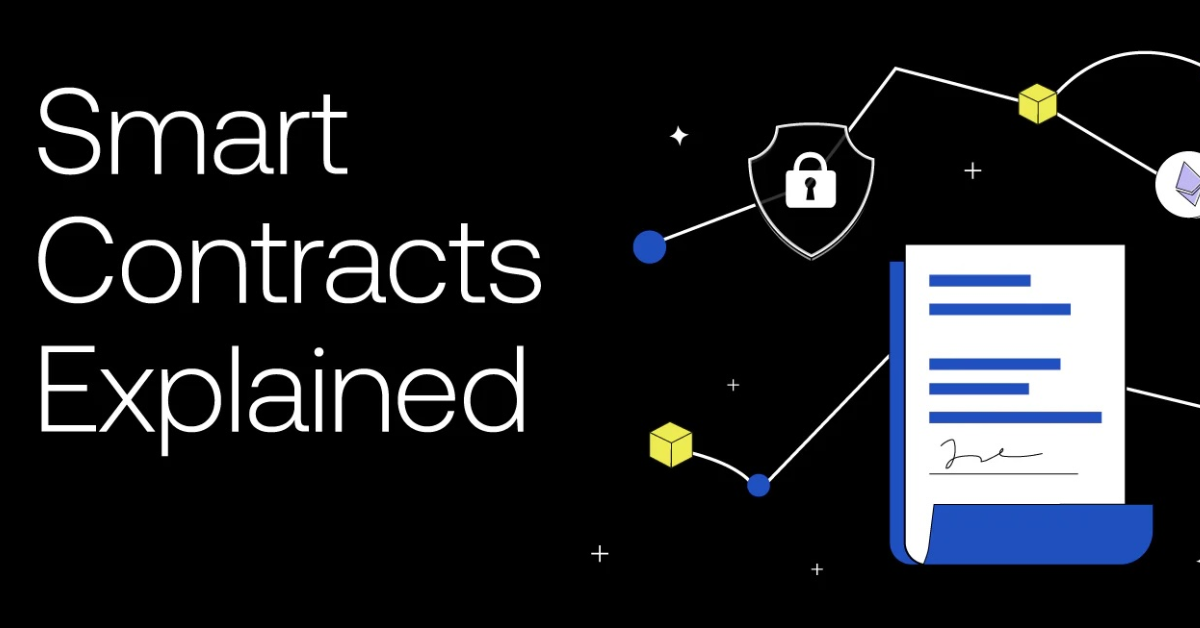Smart Contracts Explained: The Backbone of Web3 Innovation

As blockchain and Web3 technologies grow, smart contracts are transforming how agreements and transactions are executed online. These digital agreements offer automation, security, and trust, which are crucial in today's decentralized systems. At Avinya Labs, we help businesses and developers harness the potential of blockchain by offering expert solutions for contract development and security.
This article explains what smart contracts are, how they work, and the advantages they bring to industries such as finance, supply chain management, and beyond.
What Are Smart Contracts and Why Are They Useful?
A smart contract is essentially a computer program that automates actions between parties once predefined conditions are fulfilled. Unlike traditional contracts that require manual intervention and paperwork, these agreements are enforced by code, offering transparency and efficiency.
The benefits are clear:
-
Automation helps speed up processes.
-
Trust is built without relying on third-party services.
-
Once deployed, the contract’s logic remains unchangeable.
-
Data integrity and security are enhanced through encryption.
For companies exploring blockchain solutions, these features are opening new doors for innovation and cost savings.
How These Digital Agreements Work
Smart contracts are written using blockchain-specific programming languages and deployed on networks such as Ethereum or Solana. Once live, they monitor for certain inputs and execute automatically when conditions are met.
Here’s a brief overview:
-
Writing and Testing – Developers code the rules and logic.
-
Deployment – The program is uploaded onto the blockchain.
-
Triggering Conditions – The contract watches for specific events or inputs.
-
Execution – Actions are performed instantly and recorded securely.
This process allows businesses to automate workflows while reducing delays and manual errors.
Advantages for Businesses
Organizations are increasingly turning to smart contracts to streamline operations and enhance transparency.
Key Benefits:
✔ Cost Efficiency – Reduces the need for intermediaries and paperwork.
✔ Speed – Processes are handled instantly once requirements are met.
✔ Reliability – Immutable code ensures that rules are enforced consistently.
✔ Transparency – All participants can view the process in real time.
✔ Scalability – Enables global operations without extra infrastructure.
These advantages are why many enterprises are now exploring blockchain solutions for areas like financial services and supply chain logistics.
Where Smart Contracts Are Making an Impact
From finance to logistics, the adoption of blockchain agreements is expanding.
Finance
In decentralized finance (DeFi), smart contracts are used to manage lending platforms, asset exchanges, and staking protocols without centralized oversight.
Supply Chain
Contracts help track goods from source to delivery, automating certifications, payments, and compliance checks.
Insurance and Healthcare
Claims can be processed automatically, and patient data is shared securely across platforms.
These examples highlight how automated agreements are reshaping industries, offering efficiency and trust where traditional systems fall short.
Security Considerations and Best Practices
Security is a critical concern in blockchain development. A poorly coded contract can lead to vulnerabilities and significant losses. Following best practices is essential.
Recommendations:
✔ Code Review – Regular audits ensure that logic errors and bugs are fixed before deployment.
✔ Formal Verification – Mathematical models confirm that contracts perform as expected.
✔ Penetration Testing – Ethical hacking identifies weak points.
✔ Use Established Frameworks – Tools like Truffle and Hardhat enhance reliability.
✔ Documentation and Monitoring – Keeping a clear record of changes helps in tracking issues.
Adhering to these practices ensures that contracts operate safely and reliably across various platforms.
Getting Started with Blockchain Contracts
For businesses interested in exploring this technology, here are a few steps to begin:
-
Identify Key Use Cases – Focus on areas where automation or security improvements are needed.
-
Choose a Blockchain Platform – Ethereum, Polygon, and others offer robust ecosystems.
-
Collaborate with Experts – Work with developers who understand blockchain programming and audits.
-
Test Before Launch – Conduct thorough testing to ensure functionality and security.
-
Monitor and Improve – Continuously assess contract performance and user feedback.
At Avinya Labs, we guide businesses through each stage of adoption, helping them leverage these digital solutions effectively.
Why Automated Agreements Are Essential for Web3
Smart contracts are at the heart of decentralized systems. They provide the trust and automation that modern applications need, enabling faster, safer, and more cost-effective operations. From new startups to global enterprises, the adoption of blockchain-based solutions is accelerating as organizations seek more resilient and efficient ways to conduct business.
📢 Final Thoughts
Understanding how blockchain-based agreements work is key to unlocking new opportunities in the Web3 ecosystem. By embracing smart contract technology, businesses can achieve greater automation, security, and transparency.
At Avinya Labs, we specialize in creating robust and scalable solutions tailored to your needs. Whether you're entering the world of decentralized finance or optimizing supply chain management, our team is here to support your journey.
Reach out to us today and start exploring how automated agreements can transform your business.
Recently Added Blogs
We invite you to explore a selection of our completed blockchain development projects, offering a glimpse into our achievements and expertise.


